While Israel’s large arsenal of nuclear weapons is exempt from any discussion, its government drives the suspicion of Iran’s nuclear energy program, writes Mehrnaz Shahabi.
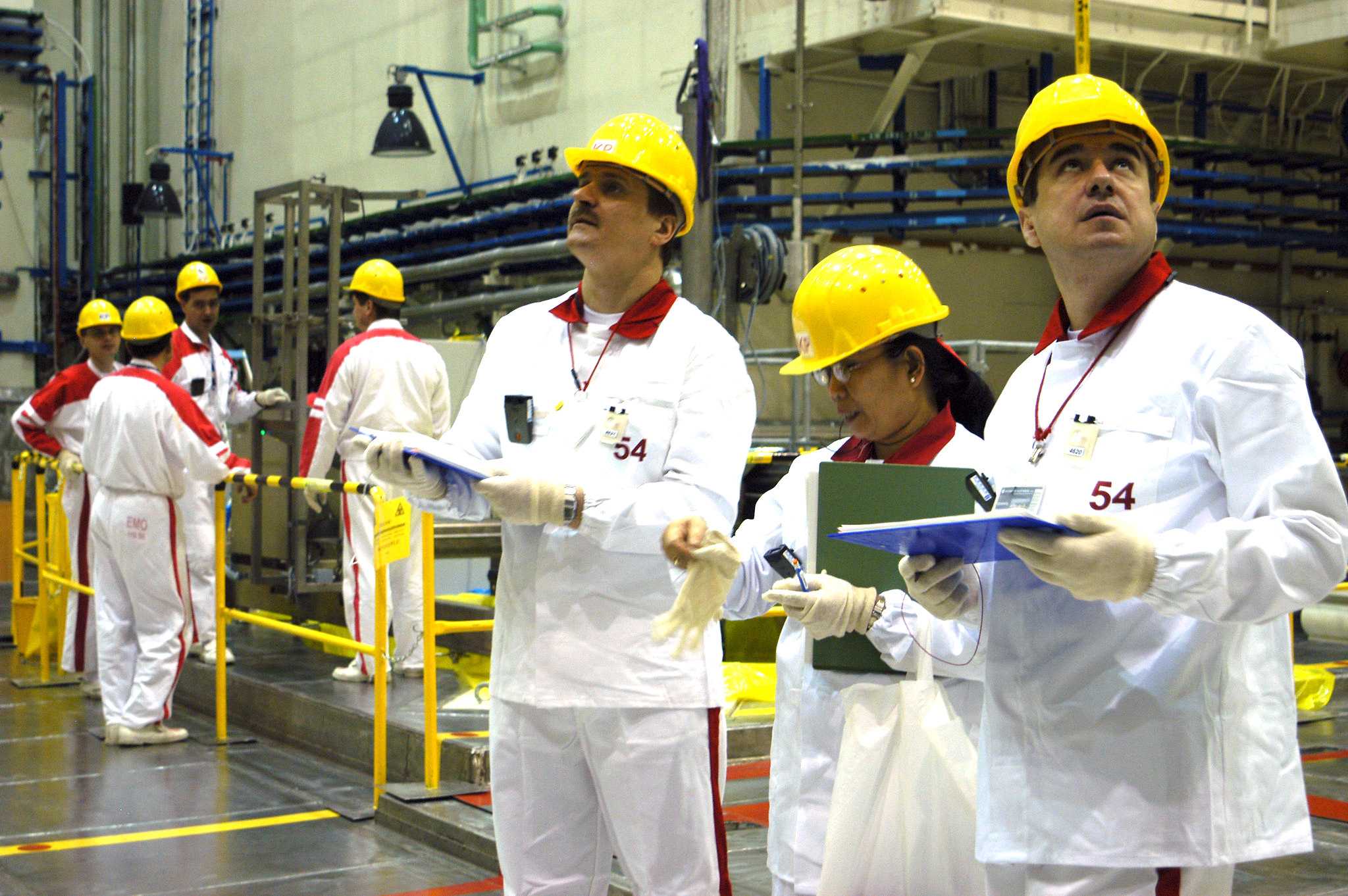
IAEA safeguard inspectors in a 2005 training exercise at Slovakia’s Mochovce nuclear power plant. (Dean Calma, IAEA, Flickr)
By Mehrnaz Shahabi
Special to Consortium News
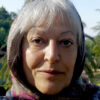 The attack on Natanz nuclear enrichment plant in Iran, on April 11, targeting underground centrifuges operating under (IAEA) safeguards, was an act of nuclear terror with the potential to kill and harm many thousands of human beings and irreparably contaminate the environment.
The attack on Natanz nuclear enrichment plant in Iran, on April 11, targeting underground centrifuges operating under (IAEA) safeguards, was an act of nuclear terror with the potential to kill and harm many thousands of human beings and irreparably contaminate the environment.
Although Israel has not confirmed or denied responsibility, the media have almost universally attributed the attack to Israel, citing senior American and Israeli intelligence officials confirming Israel’s involvement.
According to The Jerusalem Post,
“Former Mossad chief Danny Yatom expressed concerns about the leak about Israeli involvement to the Times, warning that it could impact Israel’s operational capability, in an interview with Army Radio on Monday. ‘If indeed this thing is the result of an operation involving Israel, this leak is very serious,’ said Yatom. ‘It is detrimental to the Israeli interest and the fight against Iranian attempts to acquire nuclear weapons. There are actions that must remain in the dark.’”
Western members of the UN Security Council and signatories to the JCPOA, media establishments, pundits and human rights organizations, i.e, the frontline crusaders against “Iran’s nuclear threats” and “human rights violations,” have failed to condemn this abhorrent crime.
This is not the first time Israel is targeting nuclear plants. Bombing Iraq’s Osirak nuclear reactor in 1981 and an alleged nuclear fuel plant in Deir al-Zour in Syria in 2007 were precedents. Since 2010, Israel has started a campaign of assassination of Iranian scientists and targeted Iran’s civilian nuclear infrastructure.
In June 2010, Natanz enrichment plant was attacked by the Stuxnet virus, a malicious computer worm, collaboratively made by the U.S. and Israel — entered into Natanz with the collaboration of the Dutch Intelligence — which caused the centrifuges to accelerate until they disintegrated.
On July 2, 2020, in a wave of terrorist attacks on Iran’s industrial, military and nuclear sites, a bomb blast caused a powerful explosion and fire in Natanz nuclear plant which destroyed a large number of centrifuges. Mossad chief, Yossi Cohen, told The New York Times that Israel had detonated a bomb and U.S. and Israeli officials had expressed certainty that Israel was responsible for the incidents at the military and nuclear sites.
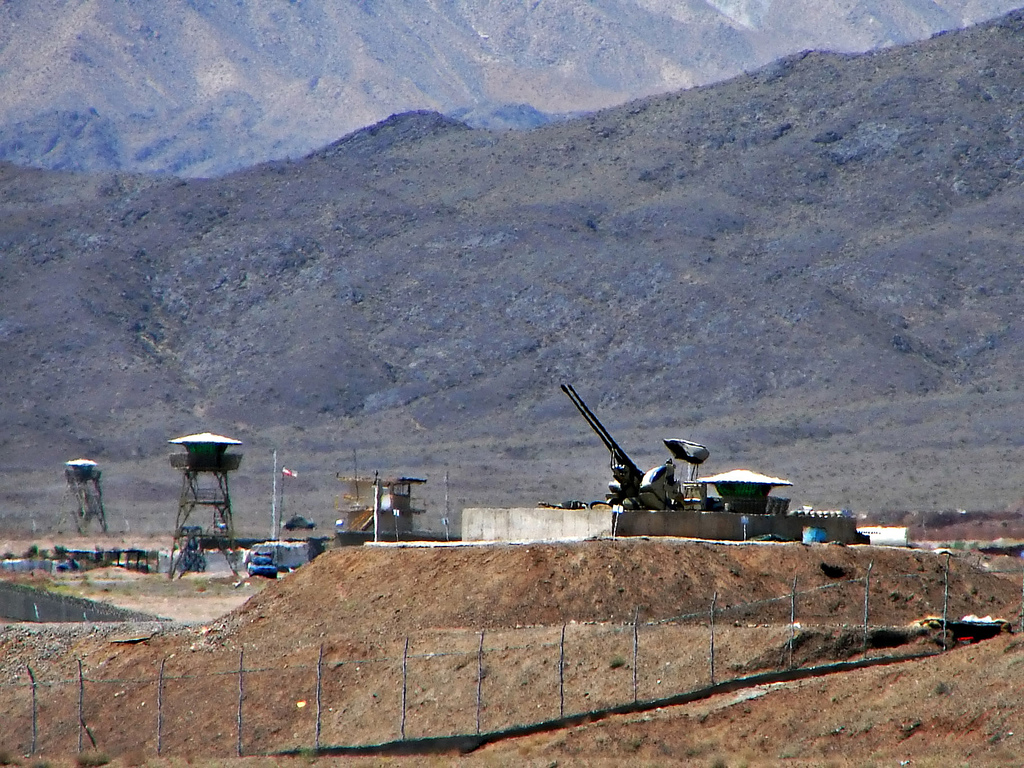
Anti-aircraft guns guarding Iran’s Natanz nuclear facility in 2006. (Hamed Saber, CC BY 2.0, Wikimedia Commons)
All these Israeli acts of aggression, with potentially catastrophic human and environmental consequences, and in clear violation of international law and the UN Charter, have been met with total impunity, often with the stated rational that Israel is trying to stop Iran and other Middle Eastern countries from developing nuclear weapons.
However, Israel — leading the scaremongering and fabrications against Iran’s civilian nuclear program for years and actively sabotaging the 2015 nuclear deal — is the ONLY country in possession of nuclear weapons in the Middle East.
Israel has adamantly refused to join the Non-Proliferation Treaty (NPT). Neither has it signed and ratified the Biological Weapons Convention nor ratified the Chemical Weapons Convention.
Started Half Century Ago
Israel’s nuclear weapons program started in the 1950s, assisted by the French who helped construct the Dimona nuclear reactor and secret reprocessing plant for separating plutonium from spent reactor fuel. The program accelerated in the wake of the 1967 war. Julian Borger in The Guardian on Jan. 15, 2014, provided a valuable outline of “The truth about Israel’s secret nuclear arsenal,” explaining how, “Israeli agents charged with buying fissile material and state-of-the-art technology found their way into some of the most sensitive industrial establishments in the world.”
Please Support Our Spring Fund Drive!
Israel’s theft and secret acquisition of material and expertise for its nuclear warheads by a sophisticated spy ring named Lakam (acronym for Science Liaison Bureau), although amply documented, remains an open secret. The same countries that secretly sold or turned a blind eye to Israel’s illegal trafficking of nuclear material and technology — the U.S., Britain, Germany and France and even Norway — are now the staunchest protagonists against Iran’s civilian nuclear program, and continue to turn a blind eye to Israel’s acts of nuclear terror. Borger wrote:
“In 1968 the CIA director Richard Helms told President Johnson that Israel had indeed managed to build nuclear weapons and that its air force had conducted sorties to practise dropping them. … At a meeting in 1976 …. the CIA deputy director Carl Duckett informed a dozen officials from the US Nuclear Regulatory Commission that the agency suspected some of the fissile fuel in Israel’s bombs was weapons-grade uranium stolen under America’s nose from a processing plant in Pennsylvania.”
Not only was an alarming amount of fissile material going missing at the company, Nuclear Materials and Equipment Corporation (Numec), but it had been visited by a veritable who’s-who of Israeli intelligence, including Rafael Eitan, described by the firm as an Israeli defence ministry “chemist,” but, in fact, a top Mossad operative who went on to head Lakam. …
On Sept. 22, 1979, a U.S. satellite, Vela 6911, detected the double-flash typical of a nuclear weapon test off the coast of South Africa. Leonard Weiss, a mathematician and an expert on nuclear proliferation, was working as a Senate adviser at the time and after being briefed on the incident by U.S. intelligence agencies and the country’s nuclear weapons laboratories, he became convinced a nuclear test, in contravention to the Limited Test Ban Treaty, had taken place. … Israeli sources told [Seymour] Hersh the flash picked up by the Vela satellite was actually the third of a series of Indian Ocean nuclear tests that Israel conducted in cooperation with South Africa.”
Mordechai Vanunu, who had worked as an engineer in the secret Negev Nuclear Research Centre near Dimona in the 1970s, on a trip to London in September 1986, blew the whistle to Sunday Times journalist, Peter Hounam, revealing 57 covertly taken photographs and a detailed description of his knowledge of the Israeli nuclear weapons program including separation of lithium-6, needed for the production of tritium, an essential ingredient of fusion-boosted fission bombs. From the information provided by Vanunu it was possible to estimate that Israel had sufficient plutonium for about 150 nuclear weapons.
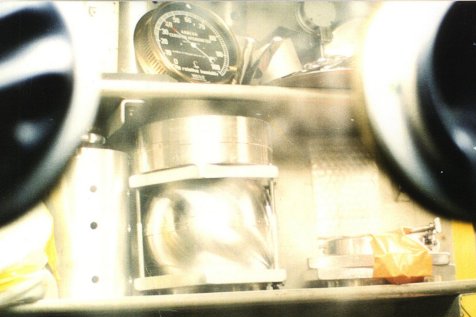
Mordechai Vanunu’s photograph of a Negev Nuclear Research Center glove box containing nuclear materials in a model bomb assembly, one of about 60 photographs he later gave to the British press. (Mordechai Vanunu’s website, Wikimedia Commons)
Vanunu’s revelations were published by The Sunday Times in October 1986. Vanunu was lured to Rome by Mossad agents, kidnapped and taken to Israel on Sept. 30, 1986.
Convicted of espionage and treason, Vanunu was placed in solitary jail for 18 years. His terms of release on April 21, 2004, have barred Vanunu from speaking to journalists, leaving Israel or traveling to the West Bank. Thirty five years after his initial imprisonment, repeated court hearings continue to rule he is bound by the terms of his release, unable to leave Israel or talk to journalists because of his possession of secrets and sensitive information dangerous to Israeli state’s security.
Iran, on the other hand, has been a longstanding member of the NPT. Despite an early history of covert activity in the 1990s in order to avoid the U.S.’ heavy-handed obstructions of Iran’s legitimate purchases and contracts for its newly fledged civilian nuclear energy program, there has been no credible evidence of a weapons dimension to Iran’s nuclear program.
Historian and investigative journalist Gareth Porter, in his seminal book, Manufactured Crisis: The Untold Story of the Iran Nuclear Scare (2014) comprehensively argues how what is cited as evidence of Iran’s nuclear weapons ambitions, such as the alleged smuggled laptop and Parchin test chamber, were concocted by Israel and the U.S. to create the fabricated crisis around Iran’s nuclear program.
History of Co-operation & Concessions
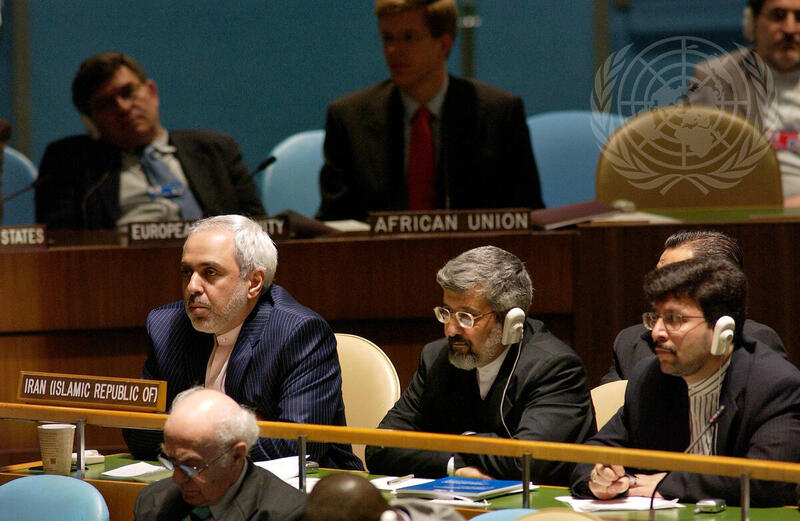
May 27, 2005: Javad Zarif (left), then Iran’s UN ambassador, at the conclusion of the 2005 review conference of parties to the Treaty on the Non-Proliferation of Nuclear Weapons, UN headquarters in New York. (UN Photo)
Iran has been fully cooperating with the IAEA and the West to address every concern about Iran’s nuclear energy program and these attempts at transparency and confidence building have been thwarted by the U.S. under pressure from Israel.
In 2002, the National Council of Resistance or Modjahedin-e-Khalgh (MEK), which until Sept. 28, 2012, was on the U.S. State Department’s terrorist list, “revealed” to the IAEA the existence of two nuclear sites: Natanz uranium enrichment plant and Arak’s heavy water reactor, both still under construction. However, Iran was not obliged to allow inspection or even inform the IAEA of the existence of these facilities until six months before the introduction of nuclear materials. Iran was not a signatory to the new Safeguards Agreement introduced in 1992.
As the Campaign Against Sanctions and Military Intervention in Iran (CASMII) document further chronicles,
“To boost confidence in its nuclear programme during the course of two years of negotiations with the EU3 (France, UK, Germany), the Iranian government voluntarily suspended its nuclear enrichment programme and in December 2003 also voluntarily implemented the IAEA’s Additional Protocol for more intrusive inspections than those required under the NPT until February 2006, when under U.S. pressure, Iran’s file was reported to the UN Security Council.”
Iran “offered to implement this again subject to the return of its nuclear file from the Security Council to the IAEA,” the document says. It goes on:
“Iran has invited Western companies to develop Iran’s civilian nuclear programme. Such joint ventures would create the best assurance that the enriched uranium would not be diverted to a weapons programme. …. but the U.S. and its allies have refused Iran’s offer.”
The nuclear swap (Tehran Agreement) deal brokered by Turkey and Brazil in 2010, according to which Tehran agreed to swap 1200kg of its low enriched uranium with uranium rods already enriched to 20 percent for cancer treatment, was a huge compromise on the part of Iran, again rejected by the U.S.
In September 2011, then Iranian President Mahmoud Ahmadi-Nejad, speaking to the UN General Assembly, announced Iran’s preparedness to suspend the enrichment of uranium to the higher percentage of 20 percent if the West provided Iran with uranium rods enriched to that level “If they give us the 20 percent (enriched) fuel, we will immediately halt 20 percent (enrichment),” he said.
This offer too was ignored by the Obama administration. On Jan. 1, 2012, Iran announced the domestic testing and production of its first fuel rods for the Tehran Research Reactor.
Joint Comprehensive Plan of Action (JCPOA)
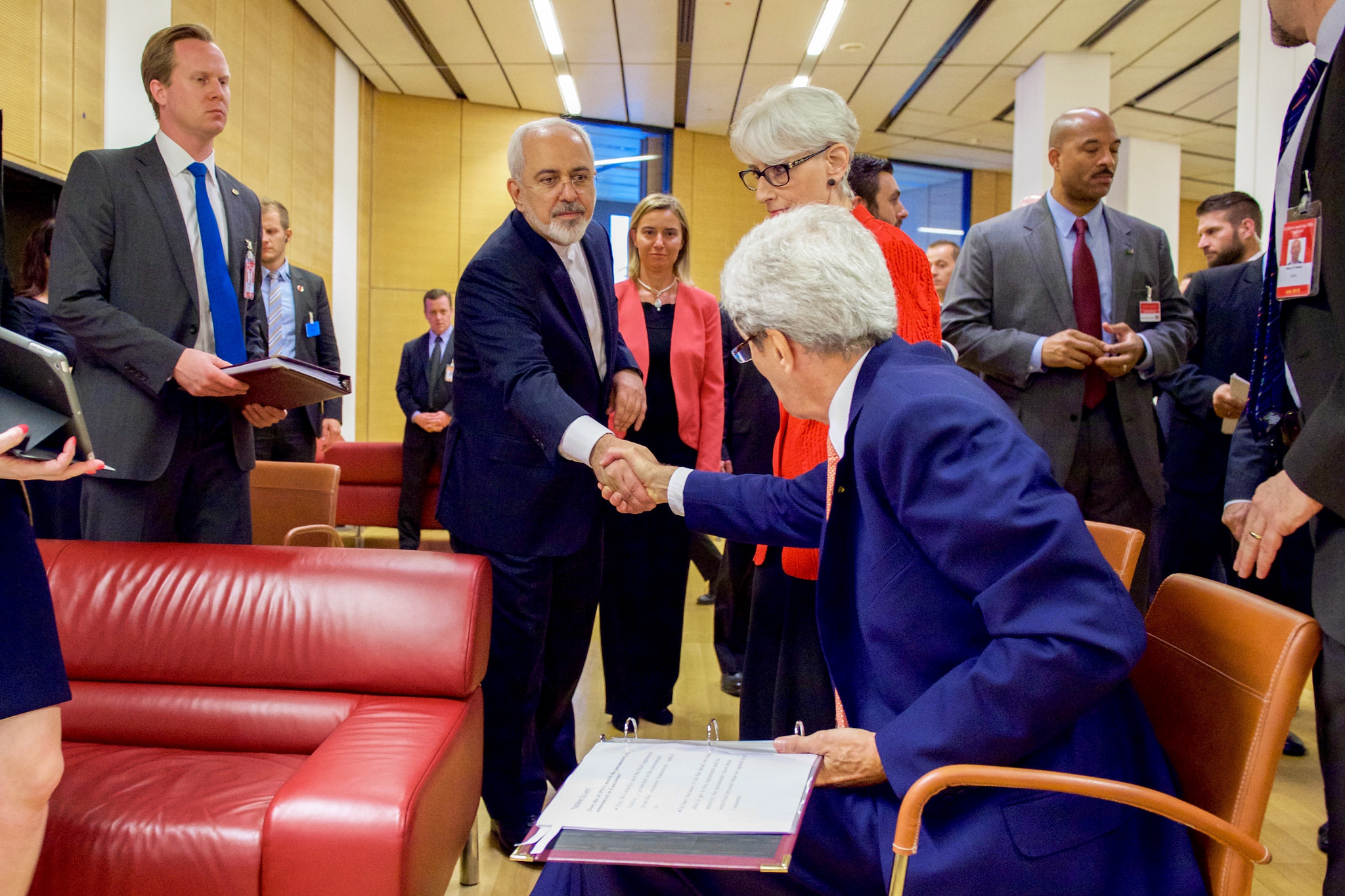
U.S. Secretary of State John Kerry, seated, saying goodbye to Iranian Foreign Minister Javad Zarif in Vienna, July 14, 2015, after Zarif read a declaration of the nuclear agreement in his native Farsi. (State Department)
After two years of extensive negotiations, Iran and the Security Council members plus Germany reached a time-bound agreement in 2015, which heavily — and very controversially in Iran — curbed Iran’s civilian nuclear program and placed it under the most stringent inspections in the history of the International Atomic Energy Agency, in return for removing Security Council, U.S. And European Union sanctions and recognizing Iran’s right to enrichment.
In the face of powerful patriotic sentiments from many Iranians, Iran also accepted the intrusive inspections of the Additional Protocol, which would allow access to any sites including military sites, should the IAEA present evidence of suspicious nuclear-related activity.
This concession, in circumstances of the military siege of the country and the fresh experiences of the aggressive bombardments of military and critical infrastructure of Iraq and Libya, is felt by many Iranians to be a dangerous colonial imposition under circumstances in which the other parties to the deal, Germany excepted, are all nuclear armed, as is Israel, Iran’s main regional adversary.
While, its large arsenal of nuclear weapons are exempt from any discussion and question, Israel drives the suspicion and the crisis over Iran’s nuclear energy program. According to Kelsey Davenport, director for non-proliferation policy with the Arms Control Association, “Iran is a unique case in that some key locations are subject to 24-hour surveillance and inspection teams are continually in Iran to verify its compliance with the agreement.”
All IAEA reports under the nuclear deal, from 2016 to September 2019, certified Iran’s full compliance with its commitments. The U.S., however, from the start, under pressure from Israel and Saudi Arabia, obstructed an effective removal of sanctions, particularly financial and banking sanctions, and prevented its European allies to enter trades and investments in Iran through introducing a climate of uncertainty and fear of secondary sanctions.
The U.S., in February 2016, stopped nationals of countries in the Visa Waiver Program Act from entering the U.S. without a visa if they had traveled to Iran after March 1, 2011. Dual nationals of VWP and Iran were also barred.
Former President Donald Trump’s announcement on May 8, 2018, of the U.S.’ withdrawal from the JCPOA and the imposition of the “highest level of economic sanctions” on Iran, was followed by then Secretary of State Mike Pompeo’s speech to the Heritage Foundation on May 21 presenting a “New Iran Strategy.”
In his typical, puffed-up, bullish style, Pompeo presented Iran with its “terms of surrender” in the form of 12 demands, which included: stopping enrichment and closing Iran’s heavy water reactor, providing unqualified access to all sites in the country, stopping Iran’s conventional defensive missile program, and ending support to strategic regional allies vital to Iran’s security and national and regional identity.
Iran’s response to these “maximum pressure’ policies was to continue with all its commitments under the JCPOA, for another year. On the anniversary of the U.S. withdrawal from the deal, in May 2019, Iran gave an ultimatum that unless other signatories reversed their aggressive non-compliance, Iran would use its right under articles 29 and 37 of the JCPOA to withdraw in part or in whole from its commitments under the deal, and on July 1, 2019, Iran began its incremental withdrawals.
The assassination on Jan 3, 2020, of Iran’s revered General Qasem Soleimani, the head of the Qods Force that is at the forefront of the fight against ISIS, led to a several millions strong mobilization of grief and anger in Iran and throughout the region. It has had unintended consequences for the perpetrators. It has crystalized a more determined resistance to colonial rule and the dominant colonial discourse — a discourse that has continued, despite the velvet gloves, into the Joe Biden administration.
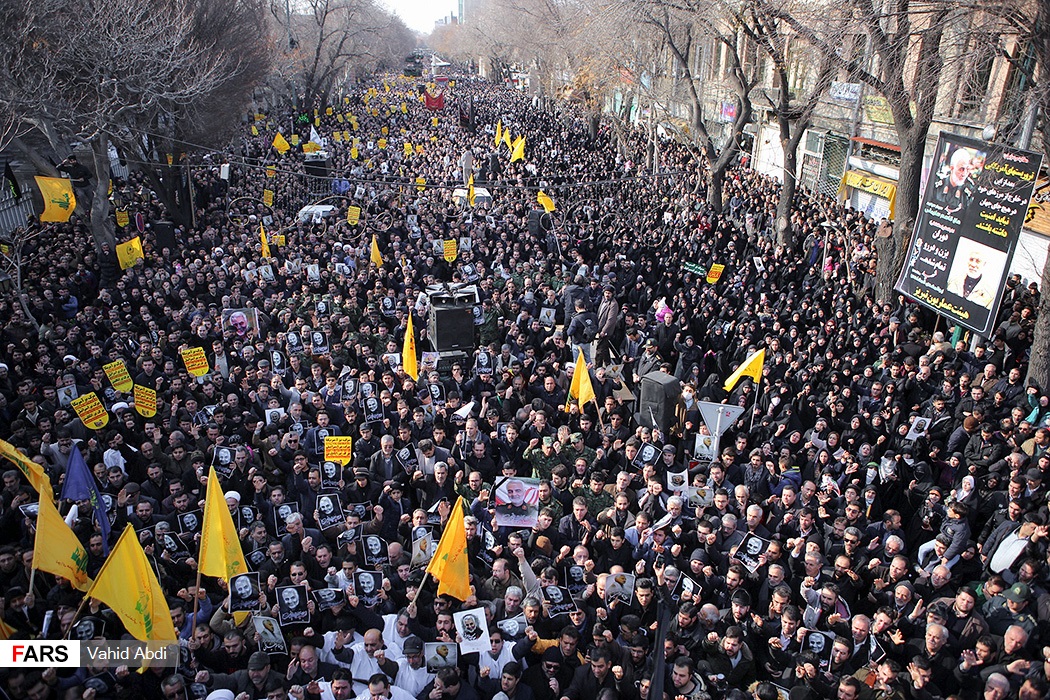
Demonstrations in Iran over the killing of Gen. Qassem Soleimani. (Fars News Agency, CC BY 4.0, Wikimedia Commons)
The new administration has reiterated Pompeo’s terms of surrender of Iran and made the fulfillment of its obligations, i.e., the removal of sanctions, conditional on Iran relinquishing its defensive missile program, its vital regional alliances and extending the timeframe and Iran’s obligations under the JCPOA. Iran’s response has been to refuse to accept any demands and to insist on the verified, full removal of all sanctions. Rooted in this emergent and growing national consciousness is a mood for no compromise, empty promises or neo-colonial threats.
Iran’s response to Israel’s nuclear terror on April 11, which was intended to undermine any possibility of the revival of the JCPOA that doesn’t meet Israel’s demands, has been to increase its enrichment level at Natanz to 60 percent. This reflects the very powerful effect of the wave of anti-colonial consciousness and resistance, which is in no mood for an unequal compromise and understands that a strong lever is the necessary ingredient in negotiations, as well as that a more equal balance of power is the only effective guarantee for self-defense.
On April 28, Israel’s intelligence minister, Eli Cohen, repeated the Israeli threat that should the U.S. re-enter the JCPOA and remove the sanctions on Iran, Israel would hit Iran’s nuclear plants with long range missiles. This threat too was met with silent acquiescence on the part of the U.S. and its Western allies, the same kind of silence that has met Israel’s continued acts of ethnic cleansing, apartheid, house demolitions, settlement building, administrative detention of children, Gaza blockade, use of phosphorous bombs, flooding and contamination of agricultural land, raiding Al-Aqsa Mosque in the holy month of Ramadan, torching trees and agricultural crops and bombarding residential apartment blocks in the besieged Gaza Strip.
Israel’s free license to act with impunity is fast sliding into war. Only fools would believe that attacking Iran’s enrichment plants, its critical infrastructure, shipping, and scientific and military personnel, would remain unanswered, and could not spill over into a destructive regional war with global consequences, from which use of nuclear weapons can not be excluded.
The gravity of what is at stake demands action. The only possible path to avoiding a catastrophic war and reaching a just peace in the Middle East, is, in the first instance, the demand that Israel disarm its nuclear weapons and place its nuclear facilities under the same scrutiny as demanded from Iran. That would be in line with the longstanding goal, backed by the UN Security Council, of a Middle East Free of Nuclear Weapons.
Mehrnaz Shahabi is an Iranian-British peace activist and independent researcher. She has published articles on Iran-related issues on various progressive website.
The views expressed are solely those of the author and may or may not reflect those of Consortium News.
The author has started the following petition, which can be found, also in Farsi, on change.org.
We, the undersigned, strongly condemn the sabotage in the Natanz nuclear enrichment plant in Iran on 11 April 2021, as a form of nuclear terror. This attack has been almost universally attributed to Israel, including by the Israeli media, and confirmed by US and Israeli intelligence officials. Such attacks carry a serious risk of high level radioactive leakage which could potentially endanger the lives of thousands of innocent human beings and irreparably contaminate the environment causing long-term genetic malformations and disease, with far-reaching destructive consequences into the future.
It has been repeatedly verified by the International Atomic Energy Agency (IAEA) that Iran’s nuclear programme is peaceful and under a strict monitoring regime. Israel, in contrast, is the only nuclear weapons state in the Middle East as it is in possession of a large arsenal of nuclear weapons, which is the reason for the country’s refusal to join the Non-Proliferation Treaty.
The deafening silence of the self-proclaimed international community in response to Israel’s nuclear terror could set a deadly precedent for its repetition and escalate into an endless chain of retaliations and an arms race in the already war-ravaged Middle East. Therefore, we call on the UN and the Security Council to responsibly and unreservedly condemn and hold Israel accountable for repeated dangerous and profoundly irresponsible attacks on civilian nuclear installations and the assassination of Iranian scientists. In addition, we urge UN member states to embark, as a matter of urgency, on the long-delayed task of nuclear disarmament of Israel and placing its nuclear programme under the supervision and monitoring of the International Atomic Energy Agency, in line with the long-standing drive to creating a Nuclear Free Middle East.
Abrahamian, Professor Ervand (Distinguished Professor of History, Baruch College and City University, NewYork)
Adib-Moghaddam, Professor Arshin (professor in Global Thought & Comparative Philosophies, School of Oriental and African Studies, London)
Azad, Dr Bahman (Executive Secretary, US Peace Council)
Baraka, Ajamu (National Organizer, Black Alliance for Peace, USA)
Brown, Dr Catherine (BA Cantab, MA, London, MSc Lond, PhD Cantab)
Brown, Dr Raymond (FRCPych, retired Consultant Psychotherapist, UK)
Chomsky, Professor Noam (Institute Professor Emeritus MIT, Laureate Professor U. of Arizona)
Coombe, Sheila (activist, Founder Frome Stop War)
Deane, Dr. Raymond (composer, author, political activist, Ireland)
Edalat, Professor Abbas (Professor of Computer Science and Mathematics, Imperial College, London, Founder of CASMII)
Ferrada de Noli, Prof Marcello (psychiatrist, professor emeritus of Epidemiology, Founder, Swedish Professors & Doctors for Human Rights)
Finkelstein, Dr Norman (political scientist, activist, former professor, author)
Flowers, Margaret (Director, Popular Resistance, USA)
Harris, Roger (Board Member of The Task Force on the Americas)
Hedges, Chris (former Middle East Bureau Chief for The New York Times)
Lauria, Joe (Editor-in-Chief, Consortium News)
Mercouris, Alexander (Editor-In-Chief, The Duran)
Mohit, Dr Morteza, M.D. (social and political analyst, USA)
Porter, Gareth (journalist, historian, author)
Prashad, Vijay (historian, journalist, Executive-Director of Tricontinental: Institute for Social Research, Chief Editor LeftWord Books)
Ramadani, Dr Sami (lecturer in sociology, activist, author)
Shahabi, Mehrnaz (peace and cultural activist, UK)
Shahabi, Mehrdad (peace and cultural activist, Iran)
Taherian, Dr. Mohammadreza (cultural activist, Iran)
Turner, Carol (Vice-Chair, Campaign for Nuclear Disarmament, London)
Farshid Vahedian (peace and cultural activist, U.S.)



Well the silence is only on one side of the issue. The ambiguous side. Those of us humans see right through the right wing bullshit!
Any institution that bases it’s arguments on ambiguity is not truthful enough to be declared a democracy.
“I despair at the immunity Israel seems to enjoy etc”. I fully agree with Lesley Hilton. Despite the widespread anger towards Israel and a host of UN resolutions, the world seems unable to act. The US and Israel have long arms around the globe. Wherever a government or politicians want to stand up for the Palestinians or simply for international law, the government and/or politicians are punished for their action of speaking publicly about such issues. In short: The international Community on governmental and political levels have been captured and this insidious process is percolating down to very many institutions. I am very angry about it.
Was there “silence” on this? I thought just about everybody already knew. It was an open secret. Of course the Zionist have nuclear weapons.
~
Now here is something interesting that not everybody might know regarding tactical behavior in the latest flare up happening in around Israel. So rumor has it, the whole ground invasion thing was a ruse in hopes of killing a bunch of “cockroaches” in the tunnels. Thing is, the thing the leaders of Israel, who seem to be stuck in the 20th century, can’t grasp is that they are not trying to inflict misery on cockroaches, even if it might seem that way to their tormented minds. The rest of us know better.
~
No, the folks living there in the Gaza strip are living, breathing human beings, and they deserve some respect. I respect them and I respect their dignity. I want them to be empowered.
~
So, after the Israeli geniuses who construed this foolish ruse (of long planning supposedly) realized how wrong they were, they then decided to destroy another building containing the journalist who reported on the ruse, and they did it to send a message I reckon. The thought in their twisted and tormented minds – eff it, lets blow them up as well cause we can and ain’t nobody out there gonna stop us and that might dispel this war crime………you know, commit one, you might as well commit another.
~
That basically is why they are now finding themselves in a corner of their own making. That is my view on it. If you have better information, please share what you know for the benefit of everyone.
~
Time for justice in my humble opinion. Old fashioned style is what I’m thinking out of respect for the Old Testament. Justified Retribution has been called for and I hear the call. I support it.
~
Peace is easy and all bullies will get their due in good time.
~
I support the Palestinians and I encourage boycotting any goods associated with Israel and not letting the goods be shipped. How about they get a bit of their own medicine? How about them apples?
~
Peace is easy,
BK
“The only possible path to avoiding a catastrophic war and reaching a just peace in the Middle East, is, in the first instance, the demand that Israel disarm its nuclear weapons and place its nuclear facilities under the same scrutiny as demanded from Iran. That would be in line with the longstanding goal, backed by the UN Security Council, of a Middle East Free of Nuclear Weapons.”
An excellent proposal. Eminently fair and effective. Sadly, with no chance of adoption.
Wrong.
~
You must be living in the 20th century and seems pompous to make a declaration of “no chance”.
~
What are you willing to bet?
~
I’m all in.
~
BK
Apartheid Israel and apartheid South Africa: two nuclear peas in a pod.
“Secret South African documents reveal that Israel offered to sell nuclear warheads to the apartheid regime, providing the first official documentary evidence of the state’s possession of nuclear weapons.
The “top secret” minutes of meetings between senior officials from the two countries in 1975 show that South Africa’s defence minister, PW Botha, asked for the warheads and Shimon Peres, then Israel’s defence minister and now its president, responded by offering them “in three sizes”. The two men also signed a broad-ranging agreement governing military ties between the two countries that included a clause declaring that “the very existence of this agreement” was to remain secret.
Botha did not go ahead with the deal in part because of the cost. In addition, any deal would have to have had final approval by Israel’s prime minister and it is uncertain it would have been forthcoming.
South Africa eventually built its own nuclear bombs, albeit possibly with Israeli assistance. But the collaboration on military technology only grew over the following years. South Africa also provided much of the yellowcake uranium that Israel required to develop its weapons.”
hXXps://www.theguardian.com/world/2010/may/23/israel-south-africa-nuclear-weapons
I despair at the immunity that Israel seems to enjoy for acts for which any other country would be roundly condemned.
Human rights, justice, quality of life and equality of opportunity should be the birthright of ALL human beings, and that includes Palestinians and Israelis. Without justice, surely there can be no peace.
I am predicting US’s response: “Israel has the right to defend itself”.
(Sarcasm, but not too far from the reality)
It’s time to disconnect Israel from SWIFT.
Zionists are the most dangerous people on the planet. And. stiill we are not supposed to talk about their nukes. ls.
Superb article.